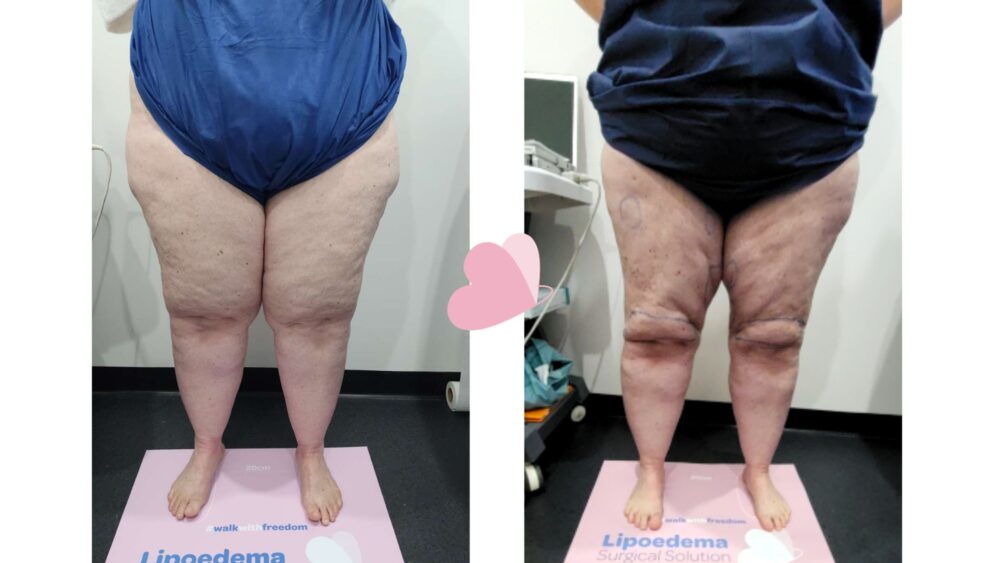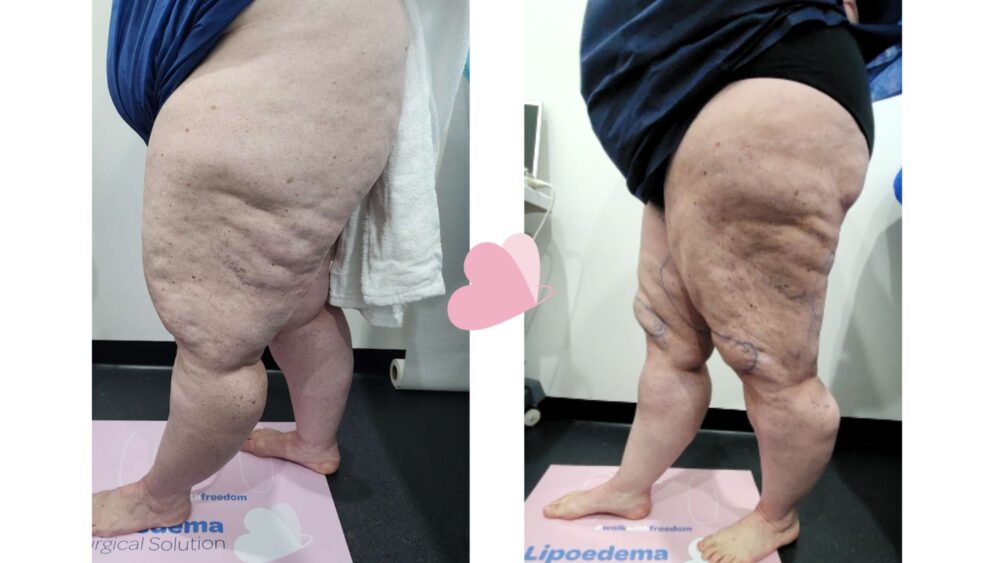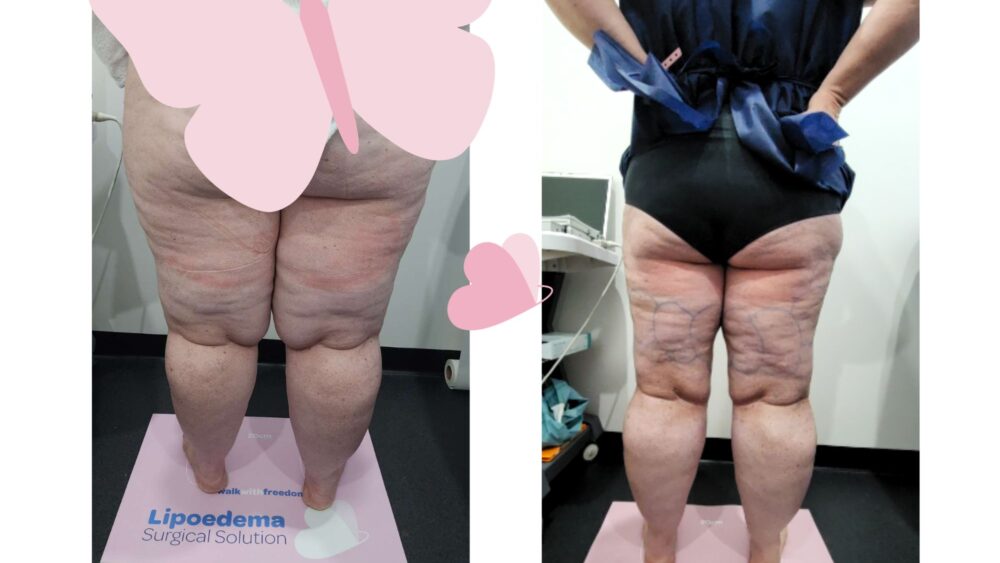Meet Jacqueline, a 44-year-old teacher from Cairns, who had long sensed something unusual about her body. From her teenage years, she felt that while her upper body seemed normal, her legs didn’t quite fit. The early signs of lipoedema began when she was just eight years old—her legs ached, her skin lacked elasticity, and she bruised easily, especially on her hips, thighs, and eventually her arms. She recalls needing to sit at the edge of her chair to avoid discomfort in her thighs and suffering from sunburn more easily than others.
Despite living with these symptoms for years, it wasn’t until much later that Jacqueline was officially diagnosed with lipoedema. She was relieved to finally have a name for the struggles she had faced for most of her life.
Jacqueline soon began on a conservative management plan, which included working with a chiropractor, manual lymphatic drainage, wearing compression garments, and walking in water for 30 to 60 minutes a day.
Despite this, the physical limitations of lipoedema persisted and began to affect Jacqueline’s daily routine. She struggled to move around, particularly when getting up from the ground during her teaching lessons. Her passion for outdoor activities like hiking and camping also became difficult to enjoy. As her symptoms persisted, she decided to pursue surgery with Dr. Lekich.
In January 2023, she had her first procedure using the minimally invasive, Lymph-Sparing technique, during which 4.8 litres of lipoedema fat were removed from her lower legs. In April, 5 litres were removed from her anterior upper legs. By June, another 4 litres were taken from her posterior upper legs, and in September, an additional 4.3 litres were removed from her lower legs. Finally, in May 2024, Jacqueline underwent a revision surgery on her legs along with her arms and abdomen surgery, which removed a further 5 litres.
Now focused on her recovery, Jacqueline has experienced a significant improvement in her quality of life. She excitedly shares that she can now hop in and out of the pool, sleep comfortably on the floor, go camping again, and even mow the lawn—activities that previously caused discomfort.
Raising awareness about Lipoedema is deeply important to Jacqueline. She believes that with so many people affected, education is key. “If 1 in 10 people have it, someone you know has it,” she says. Jacqueline has made it her mission to inform her colleagues and students about lipoedema, helping to spread knowledge about proper diagnosis and management.
“There are so many things you can do to support your body with lipoedema,” she emphasises. “Don’t give up and don’t lose hope. We are stronger and tougher than we think we are.”




